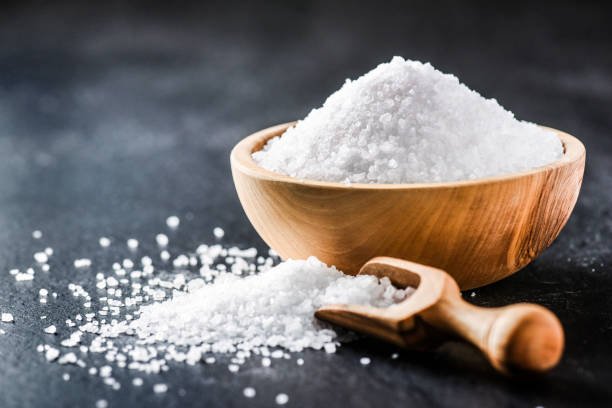Customer Support: 604793
Refined Salt
Refined salt, also known as table salt or common salt, is a type of salt that has undergone processing to remove impurities and achieve a high level of purity. It is the most commonly used type of salt in households and the food industry. Here are some key points about refined salt:
1. Processing: Refined salt is typically derived from various sources, including salt mines and seawater. The salt is first mined or extracted from seawater and then processed to remove impurities such as minerals, trace elements, and other contaminants.
2. Purification: The purification process involves dissolving the salt in water to create a brine solution. The brine solution is then filtered to remove insoluble particles and impurities. After filtration, the brine is evaporated, leaving behind crystallized salt.
Refined salt, also known as table salt or common salt, is a type of salt that has undergone processing to remove impurities and achieve a high level of purity. It is the most commonly used type of salt in households and the food industry. Here are some key points about refined salt:
1. Processing: Refined salt is typically derived from various sources, including salt mines and seawater. The salt is first mined or extracted from seawater and then processed to remove impurities such as minerals, trace elements, and other contaminants.
2. Purification: The purification process involves dissolving the salt in water to create a brine solution. The brine solution is then filtered to remove insoluble particles and impurities. After filtration, the brine is evaporated, leaving behind crystallized salt.
3. Additives: In some cases, additives may be introduced during the refining process to prevent clumping or improve the flow of salt. Common additives include anticaking agents (such as calcium silicate or sodium aluminosilicate) and iodine, which is added to prevent iodine deficiency. However, not all refined salts contain additives, and there are options available that are labeled as pure or additive-free.
4. Particle Size: Refined salt is available in various particle sizes, ranging from fine to coarse. Fine salt dissolves quickly and is commonly used for baking and seasoning, while coarse salt is often used as a finishing salt or for grinding with a salt mill.
5. Iodized Salt: In many countries, refined salt is fortified with iodine to address iodine deficiency disorders. Iodine is an essential mineral that plays a crucial role in thyroid function and overall health. Iodized salt helps ensure an adequate intake of iodine, particularly in regions where iodine deficiency is prevalent.
6. Packaging: Refined salt is commonly packaged in various sizes, including small retail packages for household use and larger packages for commercial purposes. It is available in both plain and iodized forms.
7. Culinary Use: Refined salt is widely used in cooking and seasoning due to its fine texture, uniformity, and ability to dissolve easily. It adds flavor, enhances the taste of food, and helps balance flavors in recipes.
8. Health Considerations: While salt is an important component of the diet, excessive consumption of refined salt can contribute to health issues such as high blood pressure and cardiovascular diseases. It is recommended to consume salt in moderation and to balance it with a healthy and varied diet.
It’s important to note that specific processing methods, additives used, and labeling may vary among different brands and manufacturers.










